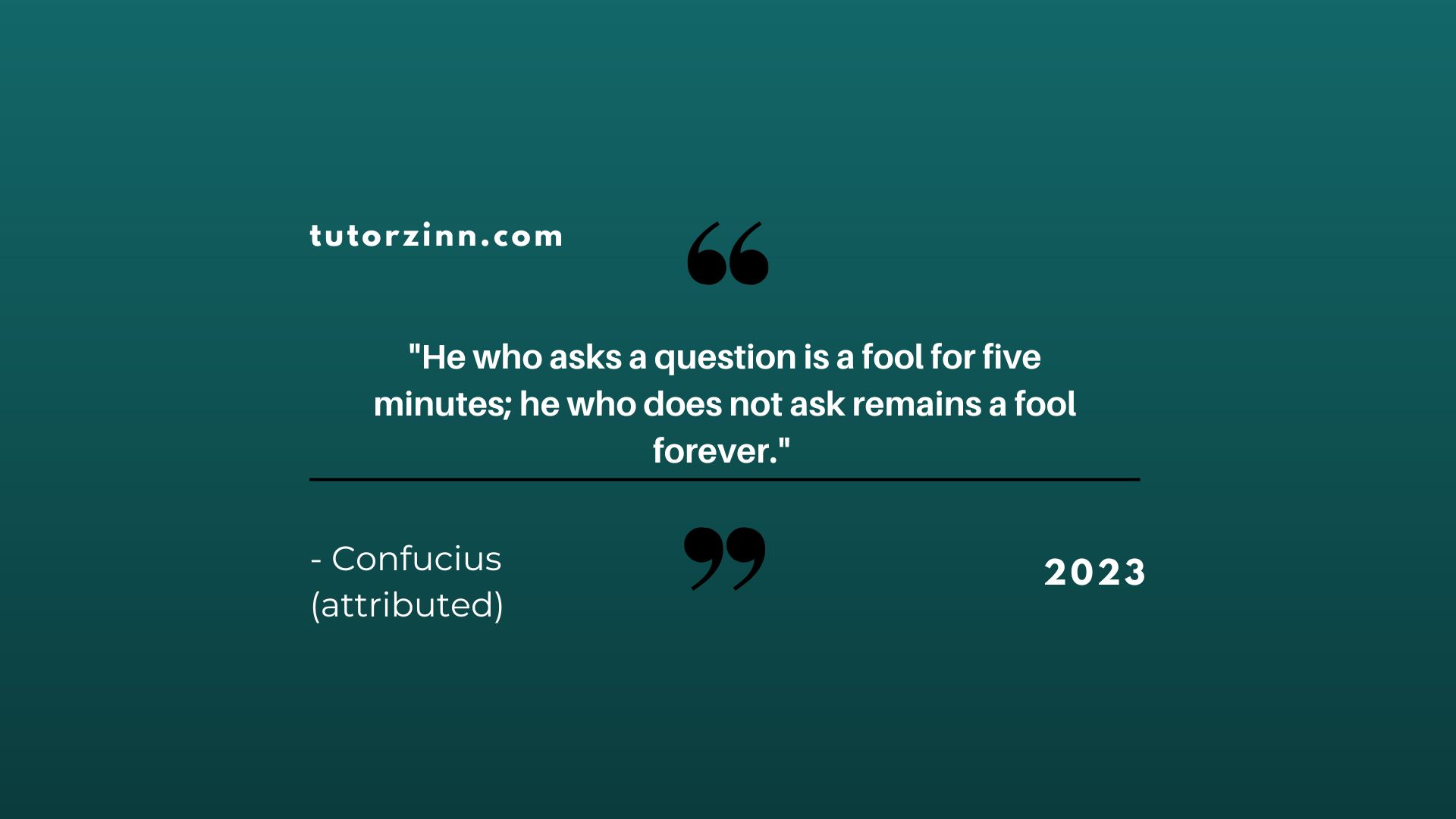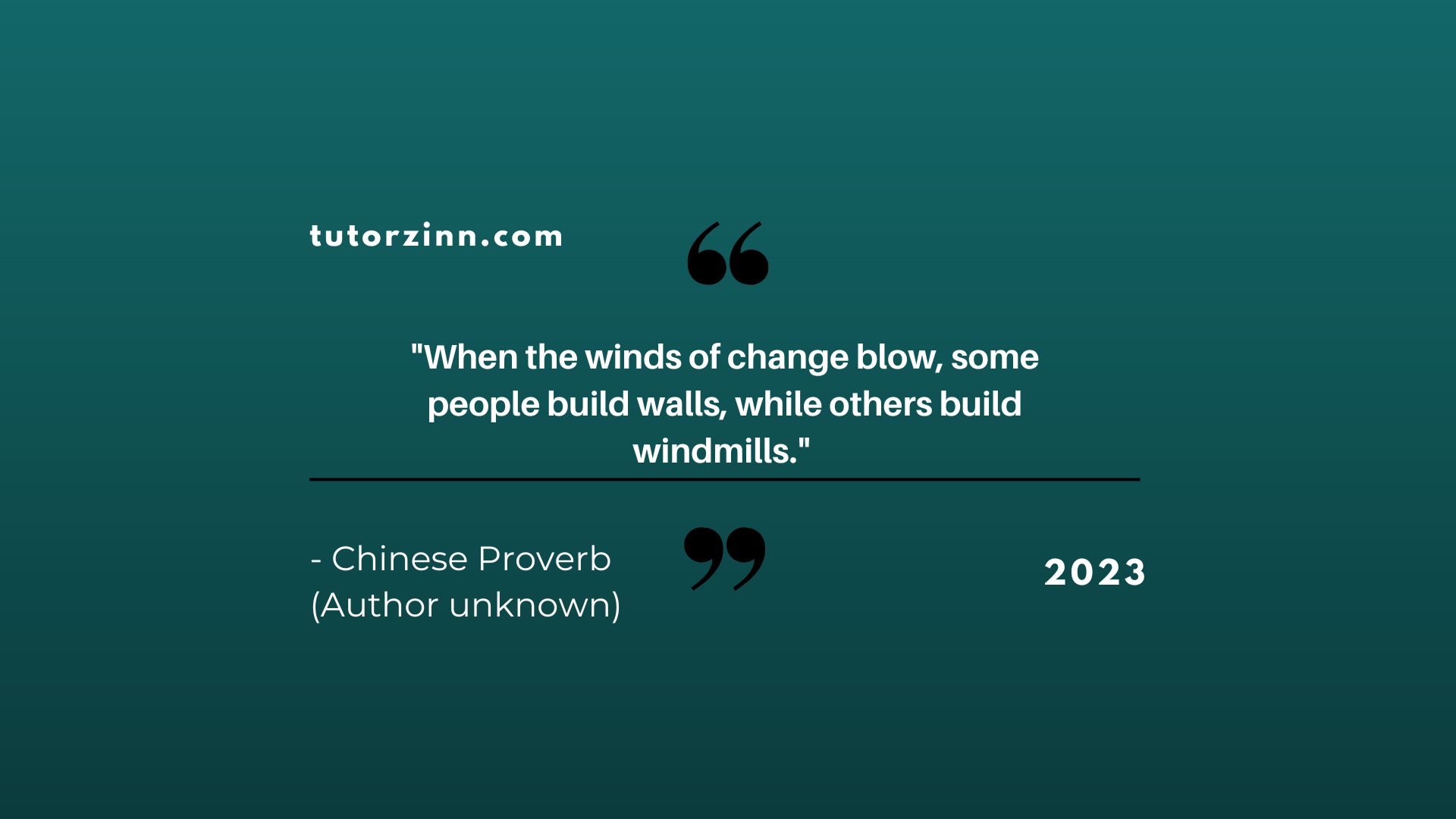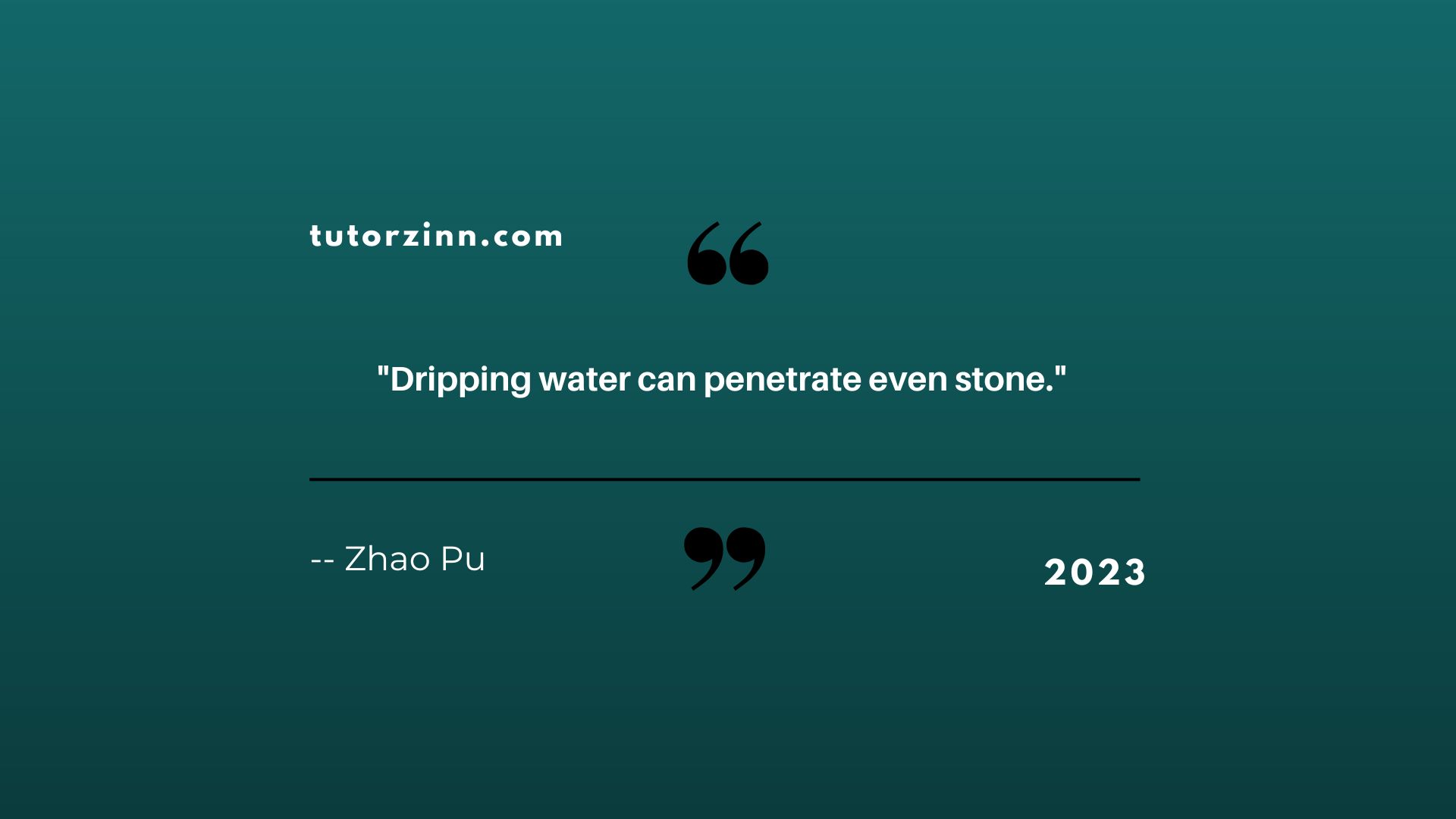“He who asks a question is a fool for five minutes; he who does not ask remains a fool forever.”
– Confucius (attributed)
Confucius, an influential Chinese philosopher and teacher, is known for his timeless wisdom and profound insights into human nature. One of his attributed quotes, “He who asks a question is a fool for five minutes; he who does not ask remains a fool forever,” carries a powerful message about the importance of curiosity, seeking knowledge, and the potential consequences of not doing so. In this explanation, we will delve deeper into the meaning of this quote, exploring its subheadings and implications.
- The Act of Asking Questions: Asking questions is a fundamental aspect of learning and gaining knowledge. By posing inquiries, we demonstrate an active engagement with the subject matter at hand. This subheading emphasizes the temporary vulnerability or momentary “foolishness” that arises when one asks a question. However, it also highlights the significance of taking that initial step towards understanding.
- Temporary Foolishness: When we ask a question, we may reveal our lack of knowledge or understanding on a particular topic. In this state, we are momentarily perceived as foolish, as we expose our ignorance. However, this perceived foolishness is only temporary, lasting for a brief period of time.
- The Path to Wisdom: Confucius suggests that the temporary foolishness resulting from asking a question is a necessary stepping stone on the path to wisdom. By acknowledging our lack of knowledge, we open ourselves up to learning and growth. This subheading emphasizes that being willing to appear foolish in the short term can lead to long-term enlightenment and understanding.
- The Foolishness of Silence: Contrasting with the temporary foolishness of asking questions, this subheading focuses on the consequences of remaining silent and refraining from asking. By choosing not to seek knowledge or clarification, we deny ourselves the opportunity to expand our understanding. Confucius implies that this act of silence leads to perpetual foolishness, as one remains ignorant and unenlightened indefinitely.
Conclusion:
Confucius’ quote serves as a reminder of the importance of curiosity, active learning, and the willingness to ask questions. By momentarily embracing the vulnerability of temporary foolishness, we pave the way for wisdom and personal growth. Conversely, if we avoid asking questions and remain silent, we risk perpetuating our own ignorance. In this way, Confucius encourages us to prioritize the pursuit of knowledge and embrace the path to wisdom, for it is through asking questions that we can overcome our initial foolishness and evolve into more enlightened individuals.




